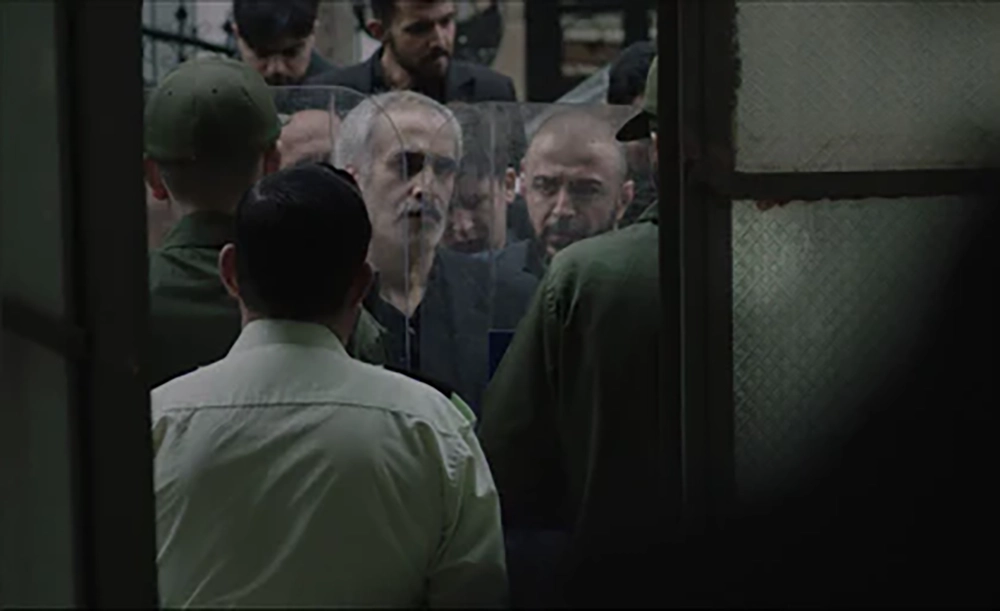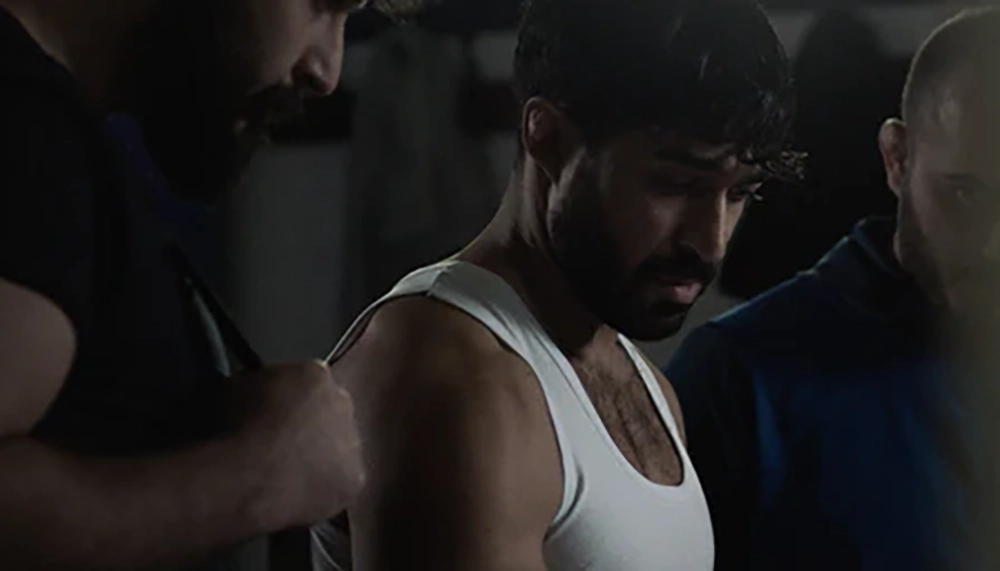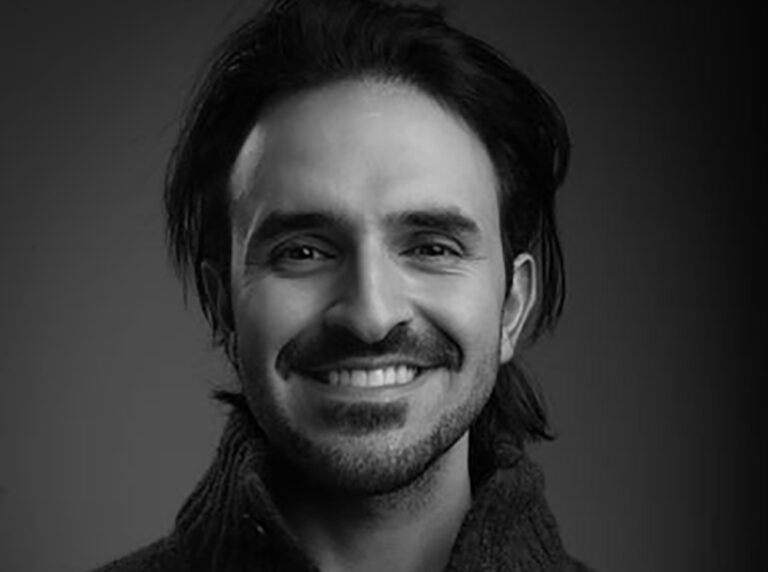The brief but impactful Iranian short “A Good Day Will Come” from Writer/Director Amir Zargara is yet another instance.
The film is a hard-hitting and heartbreaking semi-biographical narrative of an ambitious wrestler (Navid Afkari) who is vocal, yet conflicted by the human rights violations, oppressive forces, and attacks against protestors in his native Iran. This short has also recently generated Oscars buzz. In the following interview, Amir Zargara opens up about utilising the power of cinema to tell such stories of defiance. We also talk about the efforts of his team of like-minded peers—including actors of Iranian descent in the lead—all of whom brought a lot to the table.
Vidal D’Costa for The Movie Buff: Firstly, I’d like to congratulate you, Mr Zargara, since “A Good Day Will Come” has qualified for the upcoming Oscars. Could you share with our readers about your background as a filmmaker. When or how did it all begin? And are there any fellow Iranian filmmakers who inspired you to take this leap into the creative field?

Amir Zargara: Thanks, Vidal. First off, I appreciate the kind words. It’s truly an honour to see “A Good Day Will Come” qualify for the Oscars—it’s been an incredible journey. To answer your question, I think deep down I always knew I wanted to be a filmmaker. In hindsight, everything I’ve done seems to have led me to this path. It’s funny how life works sometimes—it just took me 25 years to fully realize it.
Growing up in Iran, filmmaking is woven into the culture. Iran has a rich history of cinema, and film is often a topic of daily conversation, almost like sports in other countries. Everyone—whether it’s the baker, the taxi driver, or the banker—has an opinion about a movie’s moral dilemmas, its metaphors, or whether they agree with its message. This cultural engagement really sparked my early interest in storytelling.
As an Iranian, you’re also surrounded by art, poetry, calligraphy, and music from a young age. These were part of my school curriculum, and I also practiced music outside of school. After moving to Canada in Grade 9, I expanded my artistic interests, exploring painting as a medium. This helped me develop an eye for composition, something that’s been invaluable in filmmaking.
Initially, my academic background was in math and physics, with the expectation I’d pursue engineering—especially since my parents weren’t in the arts, which is more common in Iran. I gave engineering a shot but quickly realized it wasn’t for me. Instead, I spent seven years working in clothing, which is where I fell in love with storytelling. Clothing is a form of thematic, experimental storytelling; each piece, the show, campaign photo/video contributes to a larger narrative. Eventually, I realized I loved the storytelling aspect far more than the clothing itself. That realization sparked the transition to filmmaking. It wasn’t immediate—it took me two more years to make the leap—but five years ago, I fully committed to this journey and began immersing myself in every facet of filmmaking.
As for inspiration, absolutely. Iranian filmmakers have paved the way and made the idea of pursuing this career feel attainable. Legends like Abbas Kiarostami, Asghar Farhadi, and Dariush Mehrjui have deeply influenced me. Their work continues to remind me of the power of storytelling and its ability to transcend borders.
VD: You’ve dedicated this short film to late Iranian wrestler Navid Afkari and also based the outspoken protagonist Arash on him. What were the motivations behind bringing Afkari’s story to the big screen?
AZ: I struggled deeply with this decision. Honestly, I kept hoping someone more established or esteemed than me would take it on. But as years passed and no one did, I felt a growing sense of responsibility. This film became more than a passion project—it felt like a duty, almost like the mandatory military service in Iran. That sense of obligation kept me moving forward, even when I doubted myself.

As someone living and creating in Canada, I’ve gained privileges that people back in my home country don’t have. Yet despite their circumstances, many still find the courage to speak out. It made me reflect: What was my excuse? That realization gave me the clarity and determination to bring Navid’s story to life, honouring not just his legacy but the resilience of so many others like him.
VD: You’ve also ensured an authentic portrayal by casting actors who are Iranian natives or of Iranian descent such as Sia Alipour and Mehdi Bajestani. And the striking cinematography and framing by Jelan Maxwell also leapt out and played a vital role in the storytelling. Was there any input or insight offered by the rest of your cast/crew which made it into the final cut or which might have further shaped your own vision as a director in telling this timely story?
AZ: First off, I have to emphasize that filmmaking is a team sport. Every single person involved contributed in some way to what you see on screen. Their insights and dedication shaped the film in ways I couldn’t have envisioned on my own.
Let’s start with Sia Alipour. Without him, this film simply wouldn’t exist. The role was so specific—I needed someone who spoke Farsi, had a wrestler’s physique, was trained in wrestling and martial arts, lived outside of Iran, and was okay with potentially not returning any time soon. I found exactly one person who fit the bill: Sia. He fully dedicated himself to the role, even bringing on his wrestling coach, acting coach, and action designer to choreograph the wrestling sequences. His commitment elevated every scene.
I have to emphasize that filmmaking is a team sport. Every single person involved contributed in some way to what you see on screen.” amir zargara
There were countless contributions from the cast and crew, but one moment stands out. On the morning of the protest scene shoot, Sia approached me about cutting some lines he had at the end of the scene. After talking it through, I realized he was absolutely right—the lines weren’t needed. His instincts brought more authenticity and power to the moment, and that change made its way into the final cut.
Then there’s Mehdi Bajestani—a miracle, honestly. Coming off “Holy Spider,” which had premiered at Cannes and TIFF, he somehow agreed to join our project. His presence raised the bar for everyone involved, and I’m deeply grateful for his contribution.
Jelan Maxwell, our cinematographer, was instrumental. He spent countless hours with me in pre-production, breaking down the script, analysing scenes, and working closely with our storyboard artist, Steve Worthington, to create detailed diagrams.

Iman Tahsin, our editor and on-the-ground producer in Turkey, was another cornerstone of the project. He ensured every element of the script came to life, overcoming countless logistical challenges to make it all happen.
And of course, there are so many others—department heads, crew members, and assistants—whose hard work is embedded in every frame of this film. What you see on screen is truly a collective effort.
VD: Can you walk me through Do walk me through your creative process?
AZ: For me, the process starts once the script is locked and funding is secured. I immediately bring the project to my cinematographer, Jelan, and we begin shot listing and diagramming scene by scene. I also create detailed wardrobe and art direction decks, broken down by scene, which serve as guides for their respective departments. These documents ensure everyone is aligned with the film’s aesthetic vision.
For sound, the production team and I have early discussions about specific scenes during pre-production. For post-production sound, the majority of work takes place later, but we lay some groundwork early on. The composer starts developing rough sketches during pre-production to help shape the tone and feel of the film as it evolves. This temp music guides us through until we finalize the score in post.
I believe storytelling is one of the most powerful ways to foster empathy and understanding…” amir zargara
VD: When it comes to working with actors, I conduct in-depth conversations over Zoom before rehearsals, breaking down each scene and exploring the characters’ wants, needs, and intentions. These discussions are key to building trust and a shared understanding of the story.
The Assistant Directors (ADs) are vital collaborators. We spend significant time in pre-production aligning on every detail so we can execute efficiently on set.
VD: Can we look forward to more human stories in the future too? And are there other similar topics/other genres you wish to explore further down the line? Any more voices you’re keen on amplifying via the medium of cinema?
AZ: Absolutely. I believe storytelling is one of the most powerful ways to foster empathy and understanding, and I’m deeply committed to amplifying human stories that resonate universally while shedding light on underrepresented perspectives.
Right now, I have two projects on my plate. First is the feature-length version of “A Good Day Will Come.” This expansion will allow us to delve deeper into the characters’ lives and build even greater empathy for everyone involved. The goal is to humanize all sides of the story, showing the complexities of their choices and struggles. It’s a project I’m incredibly passionate about, and every day we’re moving closer to making it a reality.
The second project is my next short film, titled “Vital,” which is currently in pre-production. It tackles the organ trade in Iran and its connection to Canada. The story aims to present both sides of this morally complex issue—those who sell and those who buy—without casting judgment. Instead, it highlights the harsh realities and emotional weight carried by everyone involved.
Looking ahead, I want to continue exploring stories that challenge preconceived notions and build bridges of understanding. Cinema has the power to make us pause, reflect, and connect, and that’s the kind of work I aim to create.

Lastly, I’m certain that “A Good Day Will Come” will spark discourse, inspire many to be more vocal about human rights especially or even influence more budding filmmakers. So, what is a piece of advice that you would pass on to the next generation of storytellers?
AZ: Ouf, I’m not sure I’m in a position to give advice just yet, but if I had to share something, it would be this: lean into the stories you’re resisting to tell. Those are often the ones that matter most—the ones that scare you, that make you feel vulnerable, that feel too personal to share. Pour everything you have into them until it feels like you’re standing completely exposed when you show your work to others. That’s when you know you’ve created something real, something that has the power to connect.
There’s a reason people say all films are somewhat autobiographical. Even when they’re not directly about you, they carry pieces of your truth, your experiences, your fears, and your dreams. Embrace that, and don’t shy away from it. When your storytelling comes from that place of authenticity, it has the potential to resonate on a deeply human level. That’s where the magic happens.
We at Movie Buff look forward to Amir Zargara’s growing filmography, and wish him as well as his crew all the best on their journey to the Oscars. Follow us for news about “A Good Day Will Come” and the Oscar qualifying short films that have been long listed.
For more information on “A Good Day Will Come” or Amir Zargara, visit his official website at the following link.


